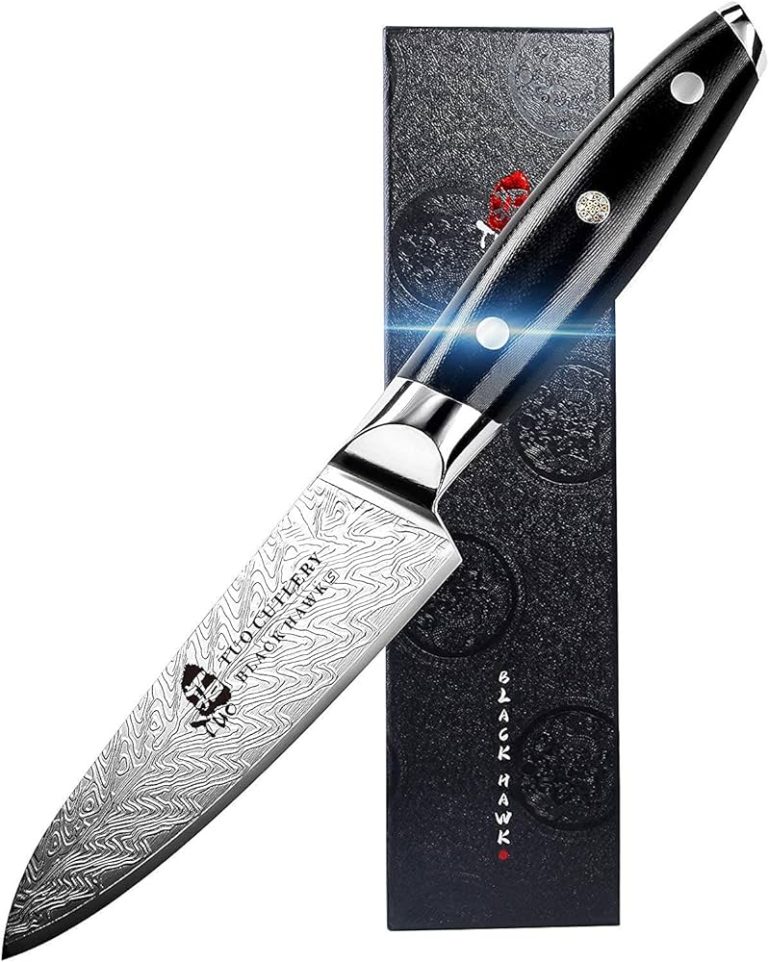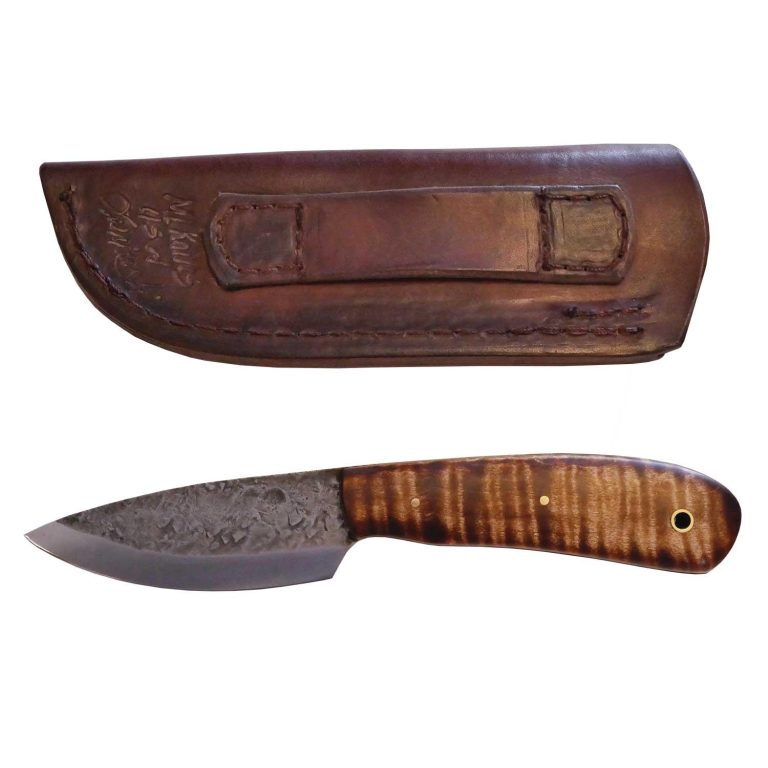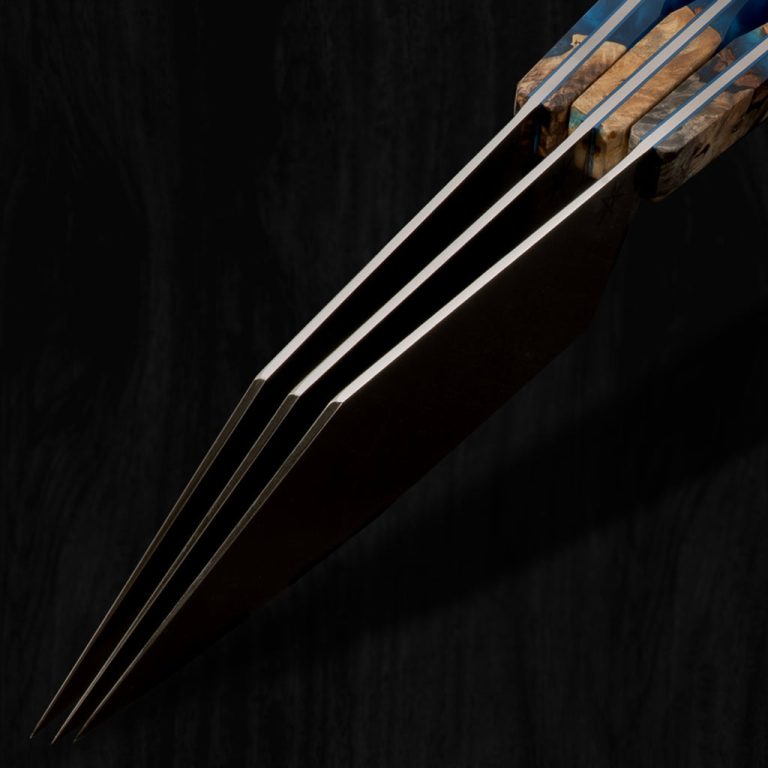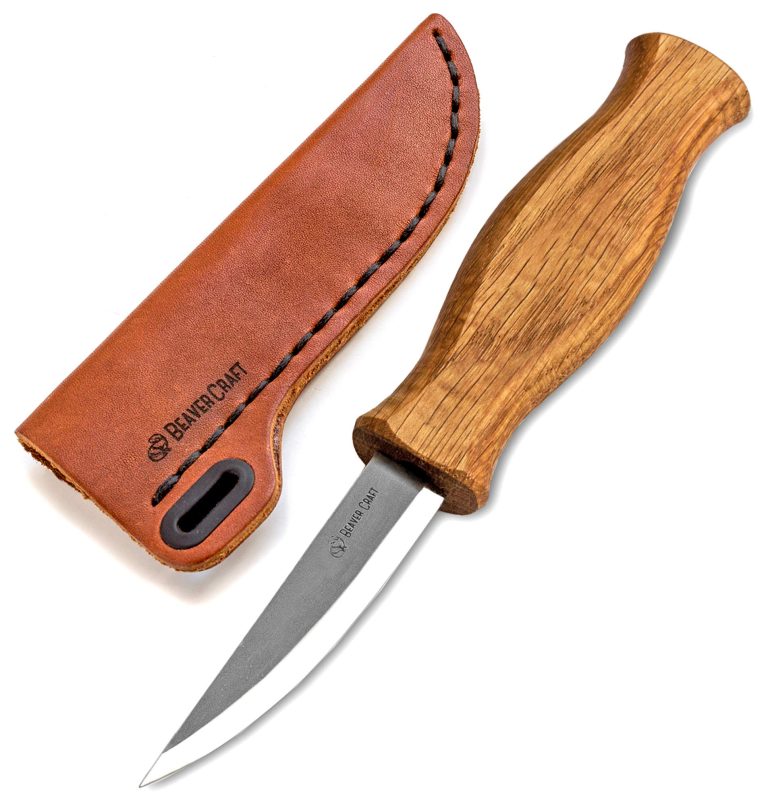Training And Certification for Proper Doctors Knife Use
Training and certification for proper doctors knife use is crucial to ensure safe and effective medical procedures. With the right training and certification, doctors can confidently handle knives and perform surgical techniques with precision and accuracy, minimizing the risk of complications and improving patient outcomes.
In the field of medicine, the safe and efficient use of knives is of paramount importance for doctors. Proper training and certification not only instill the necessary skills but also ensure the highest level of precision and accuracy during surgical procedures.
The ability to handle knives effectively in the operating room can greatly impact patient outcomes, reducing the likelihood of complications and improving recovery rates. This article explores the significance of training and certification for proper doctors knife use, highlighting the benefits of equipping medical professionals with the necessary skills and expertise to perform intricate surgical techniques with confidence and competence.
Importance Of Training And Certification
Proper training and certification are crucial in ensuring doctors’ proficiency in knife use. Acquiring the necessary skills and knowledge promotes precision and safety during procedures, benefiting both the medical professionals and their patients.
Reduce Medical Errors
Proper training and certification play a crucial role in reducing medical errors that can occur during knife use in surgical procedures. Here are some key points to highlight:
- Eliminating errors: Through comprehensive training, doctors can learn the correct techniques and protocols to handle surgical knives, minimizing the risk of errors that could negatively impact patient outcomes.
- Familiarity with instruments: Training ensures doctors are well-versed in the different types of surgical knives available, their specific functions, and the appropriate situations for their use. This knowledge helps avoid mistakes due to misunderstanding or misuse of instruments.
- Enhancing dexterity and coordination: Proper training enhances doctors’ hand-eye coordination and fine motor skills, enabling them to handle surgical knives with precision and control. This significantly reduces the chances of accidental slips or inconsistent incisions.
Proper Technique Training
Acquiring proper technique training is an essential aspect of using knives in surgical procedures. Here’s why it matters:
- Consistency in procedures: Training ensures doctors are trained in standardized techniques, enabling them to consistently perform procedures with accuracy. This consistency is crucial for reproducibility, research, and quality assurance purposes.
- Efficient surgical process: By mastering proper knife techniques, doctors can optimize their surgical approach, leading to more efficient procedures. Time-saving techniques reduce surgical duration, contributing to better patient outcomes and minimizing the risk of complications.
- Minimizing tissue trauma: Proper technique training helps doctors achieve precise cuts, reducing unnecessary tissue trauma during surgical procedures. This is particularly important for delicate tissues or intricate surgeries where precision is critical.
Precision And Accuracy
The importance of precision and accuracy in knife use cannot be overstated. Here’s why doctors should prioritize these aspects:
- Improved patient outcomes: Being trained in techniques that emphasize precision and accuracy allows doctors to achieve optimal results during surgical procedures. This translates into improved patient outcomes, reduced complications, and faster recovery times.
- Tailored surgical approaches: Precise knife use allows doctors to tailor their surgical approaches based on individual patient needs. This level of accuracy helps ensure personalized treatment, customized incisions, and targeted tissue removal, enhancing the overall surgical experience for patients.
Ensuring Patient Safety
Training and certification in proper knife use are critical for ensuring patient safety. Here’s how:
- Preventing avoidable harm: Proper training equips doctors with the knowledge and skills to minimize risks and avoid unnecessary harm to patients. It emphasizes safety protocols, reducing the likelihood of accidental injuries during surgical procedures.
- Enhanced infection control: Training includes education on sterile techniques and proper handling of knives, promoting infection prevention. Implementing rigorous protocols minimizes the risk of surgical site infections and subsequent complications, protecting patients from harm.
Minimize Infections
Minimizing the risk of infections is a key objective of knife use training and certification. Here’s what doctors learn:
- Sterilization practices: Training emphasizes the importance of proper knife sterilization techniques to minimize the risk of introducing pathogens into surgical sites. Following best practices reduces the likelihood of post-operative infections.
- Hygiene protocols: Doctors are trained to adhere to stringent hygiene protocols, including handwashing, glove usage, and gowning, which all contribute to reducing the risk of infections.
- Aseptic technique: Proper training ensures doctors understand and utilize aseptic techniques during knife use. This includes maintaining a sterile field, handling instruments appropriately, and distinguishing between sterile and non-sterile areas.
Prevent Accidental Injuries
Training and certification in proper knife use help prevent accidental injuries during surgical procedures. Here’s why it matters:
- Safer work environment: Proper training educates doctors on safe practices, reducing the risk of injuries to both the patient and the surgical team. This includes techniques to securely grasp knives, preventing accidental slips or misdirected movements that could harm them or their colleagues.
- Injury avoidance: Through training, doctors learn to handle knives safely and confidently, reducing the risk of self-inflicted injuries during surgeries. Enhanced awareness and technique minimize the chances of accidental cuts or punctures.
Types Of Knife Training And Certification Programs
Learn the different types of knife training and certification programs available for proper doctors knife use. Gain the necessary skills and knowledge to ensure safety and precision in medical procedures involving knives.
Training And Certification For Proper Doctors Knife Use
Knife training and certification programs play a crucial role in ensuring that doctors have the necessary skills and expertise to use their surgical instruments effectively and safely. These programs cover a wide range of topics, from residency programs to advanced surgical techniques.
Let’s explore some of the key types of knife training and certification programs.
Residency Programs:
- Residency programs provide doctors with comprehensive training in surgical techniques.
- These programs emphasize the proper use of knives and other surgical instruments.
- Doctors gain hands-on experience in different surgical procedures, honing their knife skills under the guidance of experienced mentors.
Specialty-Specific Knife Techniques:
- Specialty-specific knife techniques programs focus on the unique surgical requirements of different medical specialties.
- Doctors learn specialized knife skills tailored to their area of expertise.
- These programs ensure doctors are well-prepared to handle the specific challenges they may encounter in their chosen field.
Hands-On Practice:
- Hands-on practice sessions are an essential part of knife training programs.
- Doctors have the opportunity to practice various knife techniques in a controlled environment.
- They receive feedback and guidance from experts, enabling them to refine their skills and improve their precision.
Continuing Education Courses:
- Continuing education courses provide doctors with ongoing opportunities to enhance their knife skills.
- These courses cover new advancements, techniques, and instruments in surgical practice.
- Doctors stay updated with the latest developments, enabling them to provide the best possible care to their patients.
Advanced Knife Skills:
- Advanced knife skills programs are designed for experienced doctors who want to further refine their expertise.
- Doctors delve deeper into complex surgical procedures and master advanced knife techniques.
- These programs ensure that doctors are at the forefront of surgical innovation.
Latest Surgical Techniques:
- Programs on the latest surgical techniques expose doctors to cutting-edge procedures and advancements.
- Doctors learn about innovative approaches that can improve patient outcomes.
- This knowledge keeps doctors informed about emerging trends in surgical practice.
Certification Exams:
- Certification exams assess doctors’ knowledge and skills related to knife use.
- These exams validate doctors’ proficiency and understanding of proper knife techniques.
- Certifications provide doctors with recognition and credibility in their field.
Assessment Of Proficiency:
- To ensure ongoing proficiency, doctors may undergo assessments to test their knife skills.
- These assessments evaluate technical abilities and adherence to safety protocols.
- Doctors receive feedback and opportunities for improvement to maintain high standards of practice.
Recognition Of Expertise:
- Knife training and certification programs recognize doctors’ expertise in knife use.
- Certificates and credentials serve as evidence of their specialized skills.
- Recognition of expertise boosts doctors’ professional standing and instills confidence in patients.
Training and certification programs in knife use equip doctors with the knowledge and skills necessary for effective and safe surgical practice. From residency programs to advanced knife skills, these programs ensure that doctors remain proficient in their use of surgical instruments, contributing to better patient care outcomes.
Curriculum For Knife Training And Certification
Our comprehensive curriculum provides the necessary training and certification for doctors to properly use knives in their medical practice. Equip yourself with the expertise and techniques needed for safe and efficient knife usage in surgical procedures.
Anatomy and Physiology:
- Understand the intricate structure of the human body to enhance knife handling skills effectively.
- Acquire knowledge about essential anatomical landmarks and vital organs to avoid unnecessary harm.
- Identify the different layers of tissue and their functions to minimize complications during procedures.
Understanding Human Body Structure:
- Comprehend the overall structure of the human body, including the skeletal, muscular, and nervous systems.
- Gain insights into the organization of organs and their interconnectedness to improve knife precision.
- Develop a thorough understanding of the body’s unique characteristics to ensure safety during surgical interventions.
Identifying Critical Areas:
- Recognize the body’s sensitive regions, such as nerves, blood vessels, and major organs, to prevent accidental injuries.
- Learn to locate critical areas that demand extra caution and meticulous knife maneuvering.
- Enhance surgical skills by understanding potential risks associated with specific anatomical sites.
Knife Selection and Handling:
- Understand the importance of selecting the appropriate knives for different surgical procedures.
- Familiarize yourself with various knife types, such as scalpels, bistouries, and dissecting knives, and their specific uses.
- Learn proper knife handling techniques to maintain control and ensure precision during surgical interventions.
Choosing the Right Knife for Each Procedure:
- Develop the ability to assess surgical requirements accurately and select the ideal knife for each procedure.
- Understand the nuances of different knife blade shapes, sizes, and materials.
- Learn to match the knife characteristics to the specific needs of the surgical intervention to maximize effectiveness.
Proper Grip and Control Techniques:
- Master the art of holding and maneuvering knives with optimal grip and control.
- Learn various grip techniques, including the pencil, palm, and modified grip, to fit different situations.
- Refine your skills in maintaining steady and controlled movements during surgical procedures.
Sterilization and Infection Control:
- Understand the significance of maintaining a sterile surgical environment to prevent infections.
- Learn proper sterilization techniques for knives and other surgical instruments.
- Familiarize yourself with infection control protocols, including hand hygiene and the use of sterile drapes.
Preventing Cross-Contamination:
- Develop a thorough understanding of cross-contamination risks and preventive measures.
- Learn to handle knives and other instruments in a way that minimizes the transfer of harmful microorganisms.
- Implement proper cleaning, disinfection, and sterilization procedures to ensure patient and practitioner safety.
Adhering to Hygiene Standards:
- Acquire knowledge about hygiene standards and best practices to maintain a clean and safe surgical environment.
- Understand the importance of personal protective equipment (PPE) and its proper utilization.
- Comply with hygiene guidelines to reduce the risk of surgical site infections and promote overall patient well-being.
Wound Closure Techniques:
- Gain expertise in wound closure techniques for efficient healing and minimal scarring.
- Learn different methods, such as suturing and stapling, and their appropriate applications.
- Understand the factors influencing wound closure decisions, including wound characteristics and patient-specific factors.
Minimizing Scarring and Complications:
- Acquire insights into techniques for minimizing scarring and potential complications during surgical procedures.
- Learn about advanced closure methods, such as tissue adhesives and suturing techniques for improved cosmetic outcomes.
- Develop strategies to ensure patient comfort and optimal healing post-surgery.
By completing a comprehensive curriculum that covers anatomy, physiology, proper knife selection and handling, hygiene standards, and wound closure techniques, doctors can attain the necessary training and certification for effective knife use in medical procedures. With this knowledge, they can provide safe and precise surgical interventions while promoting patient well-being and successful outcomes.
Benefits Of Knife Training And Certification
Knife training and certification for proper doctors’ knife use offer numerous benefits, including improved surgical precision, reduced risk of injury, enhanced patient outcomes, and increased confidence in performing procedures. Mastering the art of knife skills through comprehensive training and certification ensures optimal safety and proficiency in the operating room.
Training and certification in proper doctors knife use have numerous benefits that can positively impact surgical practice. From enhanced surgical skills to career advancement, these advantages contribute to improved surgical outcomes and a higher level of patient care. Let’s explore the key benefits of knife training and certification:
Enhanced Surgical Skills:
- Develop a deep understanding of different surgical techniques and knife handling skills.
- Learn proper incision, dissection, and suturing techniques for various procedures.
- Gain expertise in the safe and efficient use of surgical instruments, including knives.
Faster And More Efficient Procedures:
- Acquire the ability to perform surgical procedures with precision and speed.
- Efficient knife handling techniques save valuable time in the operating room.
- Reduce procedure duration, enabling surgeons to perform more surgeries within the same timeframe.
Improved Surgical Outcomes:
- Mastering knife skills leads to better quality surgical outcomes.
- Enhanced precision minimizes the risk of errors and complications during surgery.
- Improved surgical outcomes lead to faster patient recovery and reduced hospital stays.
Increased Confidence And Competence:
- Knife training and certification instill confidence in surgeons’ abilities.
- Surgeons feel more competent in their surgical skills and techniques.
- Increased confidence positively impacts patient communication and overall surgical performance.
Reduced Stress And Anxiety:
- Proper training and certification alleviate stress and anxiety during surgeries.
- Surgeons feel more prepared and confident, reducing performance-related stress.
- A stress-free surgical environment improves patient safety and outcomes.
Better Decision-Making In High-Pressure Situations:
- Knife training equips surgeons with the skills to make quick, accurate decisions during complex procedures.
- Improved decision-making under pressure leads to better patient care.
- Surgeons can handle unexpected complications with greater confidence and efficiency.
Professional Recognition And Opportunities:
- Accredited knife training and certification enhance professional reputation.
- Surgeons with specialized knife skills gain recognition in the medical community.
- Opportunities for collaboration, research, and leadership roles increase with certification.
Career Advancement:
- Possessing knife training and certification opens doors to career advancement.
- Accredited surgeons are eligible for higher positions within hospitals and clinical settings.
- Advancement opportunities often come with increased responsibilities and better compensation.
Expanded Expertise And Specialization:
- Knife training and certification allow surgeons to expand their expertise and specialize in specific areas.
- Advanced techniques and specialized procedures become accessible with additional training.
- Highly skilled surgeons are sought after for complex and specialized surgeries.
As more surgeons undergo knife training and certification, the overall quality of surgical practice improves. Embracing proper knife use training benefits surgeons, patients, and the medical profession as a whole.

Credit: polishcustomknives.com
Frequently Asked Questions For Training And Certification For Proper Doctors Knife Use
How Long Does It Take To Become An Abs Master Smith?
To become an abs master smith, it typically takes several years of dedicated training and experience.
What Does It Take To Be A Mastersmith?
To become a Mastersmith, you need to undergo rigorous training, gain experience, and demonstrate exceptional craftsmanship.
How Many Master Bladesmiths Are There?
There are many master Bladesmiths, but the exact number is not readily available.
What Is A Journeyman Bladesmith?
A journeyman bladesmith is someone who has completed extensive training to master the art of making blades.
Conclusion
To wrap up, proper training and certification in doctors knife use is crucial for ensuring the safety and well-being of both doctors and patients. By obtaining the necessary knowledge and skills, doctors can confidently handle and manipulate knives during surgical procedures, minimizing the risk of accidents or injuries.
Additionally, the proper use of knives can enhance the efficiency and effectiveness of surgical techniques, leading to improved patient outcomes. Moreover, being trained in doctors knife use allows doctors to stay up-to-date with the latest advancements and best practices in surgical procedures.
This continuous learning and certification process ensures that doctors are equipped with the necessary expertise to provide the highest standard of care to their patients. Overall, investing in training and certification for proper doctors knife use is a vital step towards ensuring safe and successful surgical interventions.






